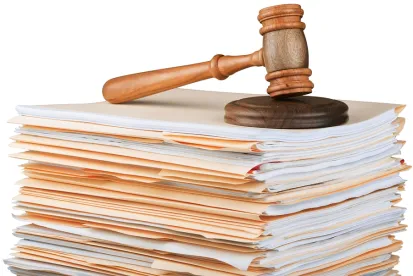Section 411(a) of the Copyright Act generally requires copyright registration, or a refusal of registration, before a copyright action may be filed. This has led to a variety of decisions from the Circuit and District Courts interpreting the meaning of “registration.” It has even led to an intriguing gloss from the Supreme Court, Reed Elsevier, Inc., v. Muchnick, 559 U.S. 154 (2010), holding that Section 411(a) is not a jurisdictional requirement but merely a precondition. The Circuit Courts are now split into three groups, namely, “registration” (registration means what is says…a certificate or refusal in hand), “application” (all elements necessary for registration – an application, deposit copy and fee filed in the Copyright Office) and undecided. None of these positions can easily be harmonized potentially leading to inconsistent results and forum shopping.
This leads us to ask the most obvious question: WHY? … are seemingly so many willing to spend so much time, effort and money to litigate the most preliminary of copyright questions?
The most recent Circuit to weigh in on this issue, the Eleventh Circuit, in Fourth Estate Public Benefit Corporation v. Wall-Street.com LLC, No. 16-13726 (11th Cir. 2017), finds itself joining the “registration” group, dealing, as it must, with facts and issues presented by the parties before it, but without resolving the “Why.”
Fourth Estate Public Benefit Corporation (“Fourth Estate”), a news organization, granted a license to Wall-Street.com to broadcast Fourth Estate’s news articles on Wall-Street.com’s website. When the license terminated, Wall-Street.com continued to disseminate the articles. So, while Fourth Estate’s copyright application for the articles was pending in the Copyright Office, but before issuance or refusal, it filed a copyright action. Citing Section 411(a) of the Copyright Act, the Eleventh Circuit affirmed the District Court’s dismissal holding that Fourth Estate failed to meet the registration precondition for suit.
Fourth Estate unsuccessfully argued that Section 411(a) has more than one plausible meaning – the proper one being that “registration” is completed after filing the application. If Fourth Estate’s case was initiated in another Circuit, this argument may have been successful. Courts generally understand that registration is a precondition to filing suit for copyright infringement. But, as mentioned, they do not agree on when “registration” occurs.
The Copyright Act defines registration unhelpfully as “a registration of a claim in the original or the renewed and extended term of copyright.” 17 U.S.C. § 101. Section 410(d) adds to the confusion by providing, “[t]he effective date of copyright registration is the day on which an application, deposit, and fee, which are later determined by the Register of Copyright or by a court of competent jurisdiction to be acceptable for registration, have all been received in the Copyright Office.” Nowhere, however, does the Act define when, as required by Section 411, “a copyright registration has been made . . . .” Therefore, Circuit courts have reasoned that either “registration” means registration, or alternatively, when the requirements for eventual registration have been made by filing the application.
The Tenth and Eleventh Circuits follow the registration approach while the Fifth and Ninth Circuits follow the application approach. See, e.g., La Resolana Architects, PA v. Clay Realtors Angel Fire, 416 F.3d 1195 (10th Cir. 2005), abrogated in part by Muchnick, 559 U.S. 154; Positive Black Talk Inc. v. Cash Money Records Inc., 394 F.3d 357 (5th Cir. 2004), abrogated in part by Muchnick, 559 U.S. 154; Cosmetic Ideas, Inc. v. IAC/Interactivecorp., 606 F.3d 612 (9th Cir. 2010). The former construes away language suggesting that the “effective” registration looks back to the application date while the latter overlooks the desirability, possibly implicit in the statutory scheme, of first securing the guidance and expertise of the Copyright Office in determining whether the work in question merits a copyright. The drawback to both approaches is that no one really knows when the infringement action precondition is satisfied. The Supreme Court gloss in Muchnick, that registration is not jurisdictional, is helpful since, even in registration jurisdictions, the courts now at least retain authority to oversee settlement of copyright claims even where they might not have the authority to adjudicate them.
This brings us back to the question…Why?
Because the First, Second, Third, Fourth, Sixth, Seventh and Eighth Circuits have yet to decide the issue, there is still plenty of time for litigation before the Supreme Court ultimately resolves it. But why keep litigating while a very practical alternative, an alternative that the courts have apparently been unwilling to make obvious to litigants, exists? On the one hand, the parties could wait until the Copyright Office issues or refuses the registration. It seems likely, for example, that the Fourth Estate’s registration actually issued sometime during the pendency of the District Court’s and Eleventh Circuit’s decisions. Unfortunately, the Copyright Office is suffering serious administrative delays in part because of an increasing workload aggravated by arguably insufficient financial resources and staffing. Given the current lag time of often six to eight months from the application filing date to issuance, justice delayed might be justice denied.
On the other hand, consider this. The typical copyright application fee is $55. For this, you get a normal turnaround which, as noted above, could be half a year or longer. However, given an allegation of actual or prospective copyright litigation, or some other pressing need, the Copyright Office will issue a registration or refusal generally within 10 business days or less. Special Handling, Copyright Office, available at https://www.copyright.gov/help/faq/faq-special.html. This “special handling” service does cost an additional $800 per application. However, balanced against all the other costs and contingencies in a full-fledged copyright infringement action, it is unclear why more parties haven’t elected this option, or even why the courts have not pressed the parties to avoid spending valuable judicial resources on a preliminary, gate-keeping measure.
One may argue that the $800 “special handling” fee is exorbitant when multiple works are infringed. However, the Supreme Court’s Muchnick decision suggests that once the registration precondition is met for one work, the court could potentially exercise jurisdiction over all related works even if still the subject of pending applications. In any event, absent early registration prior to the first act of infringement, the plaintiff may still find litigation leading to a pyrrhic victory if unable to collect statutory damages or attorneys’ fees under Section 412.
In short, we can only speculate when, if ever, the Supreme Court will take up and resolve the split among the circuits between the registration and application approaches. What requires little speculation, however, is whether the combined cost of all the prior and future disputes over this issue is more or less than $800.



 />i
/>i

